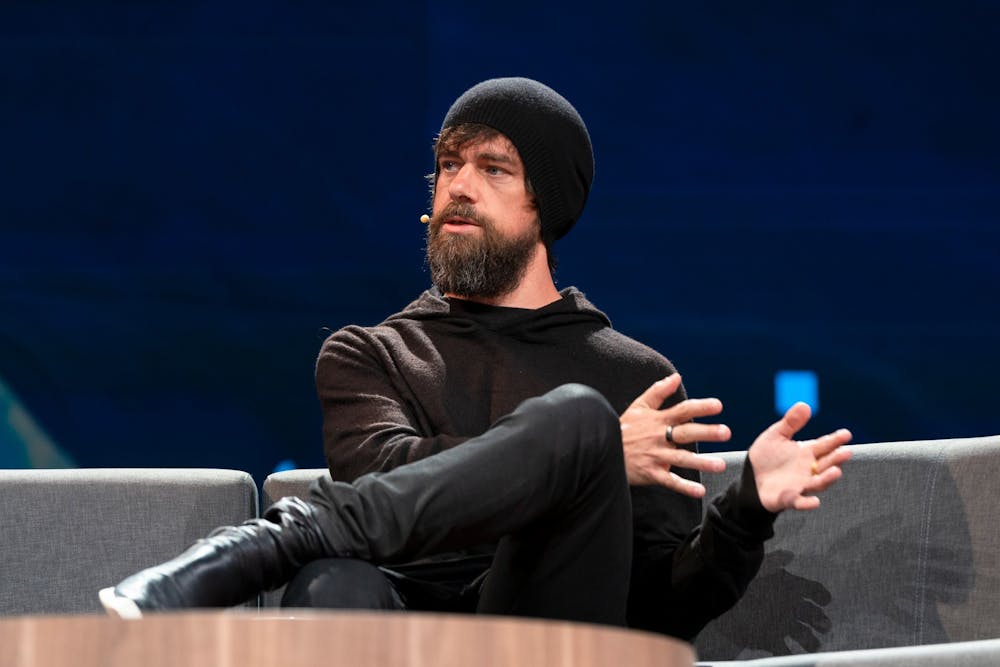Among many contested issues this election season, one of the common scapegoats of various issues has been the media.
Accusations are thrown left and right—the media only covers when President Donald Trump messes up, the media blasts fake news about COVID-19 or the media is so focused on the election that they aren’t covering the real issues.
I hear you. I see you. And I’d like to pose one question: what exactly is ‘the media?’
The answer to this is, quite honestly, a little convoluted. Media, as in news coverage, exists in a myriad of forms across TV, print, online, radio, podcast or social media. Each platform exists to serve a different purpose.
Oftentimes, when people refer to ‘the media’ in these tones, they’re referring to TV, websites and social media. And in those circumstances, the likelihood of their accusation being correct is much higher.
At the end of the day, those platforms are dictated by the ability to keep viewership and advertising dollars.
All of a sudden, stories that aren’t important take massive, sensationalized headlines, and anything involving a political figurehead or celebrity is breaking news. However, this also means that sometimes what’s important to cover can be glossed over or forgotten.
The biggest culprits of this are often the most known platforms like Fox News, CNN, MSNBC, etc. Ultimately, they thrive on keeping their viewership in their echo chamber of self-confirmation and rallying. It’s not nearly as profitable to tell people what they don’t want to hear.
“We have to think about the places we’re getting our information,” said Jakob Miller, associate professor of American politics, in the recent media bias panel.
However, there are forms of media that genuinely try to inform people in an unbiased manner. Most often, these come in the form of newspapers or newspaper websites, which, although still funded by advertising, are more driven to pull readers through engaging, informative and cutting-edge content.
Some of the largest scandals in the last several years have been uncovered by newspaper journalists. The massive sexual abuse scandal involving Larry Nassar and USA Gymnastics was broken by a reporter at the Indianapolis Star, a newspaper with a circulation just under 100,000. Jeffrey Epstein wasn’t discovered in a massive FBI bust, but rather, the smart reporting of Julie Brown at the Miami Herald, a newspaper with circulation around 75,000.
Children are taught how to engage with different types of literature for their comprehension—fairy tales, nonfiction books and poetry. However, we often don’t recognize the distinction in the media.
For example, a few months ago, I saw a post on Instagram about the persecution of Muslims in China. Someone had reposted it to their story and added the text, “Why isn’t the media talking about this?!”
I was shocked. Yes, the story itself was shocking, but I was honestly shocked that this person didn’t know about the ongoing human rights issue.
The Washington Post, New York Times and many other newspapers had been covering the persecution in China for over a year. It wasn’t a new, developing situation. It was sadly something that had been going on for quite a while.
Ultimately, our perceptions of the news can reflect much more on our media diet than the media itself.
We like easy, consumable stories that either impassion us for our causes or against someone else’s. Our likes, retweets and media habits reflect that—look no further than the endless market of re-postable news graphics and videos that have taken over Instagram stories.
There is, without a doubt, a difference between how Fox News and the Wall Street Journal cover the election. Do we recognize it's in front of us? Do we still recognize it when it’s in favor of our political leanings?
Furthermore, can we recognize bias even in the media we trust? Especially right now, we have to be discerning and diligent consumers of news media, and I’d be blind to suggest just because a publication prints it doesn’t have an agenda or journalistic laziness.
“We have to think about the places we’re getting our information,” said Jeff Groeling, professor of communication. “And that takes some practice—we don’t just snap our fingers and get better about it overnight.”
Without that intentional discernment about media consumption, we’ll become blind the more we attempt to see.
Seek truth, but know where and how you’re looking.




